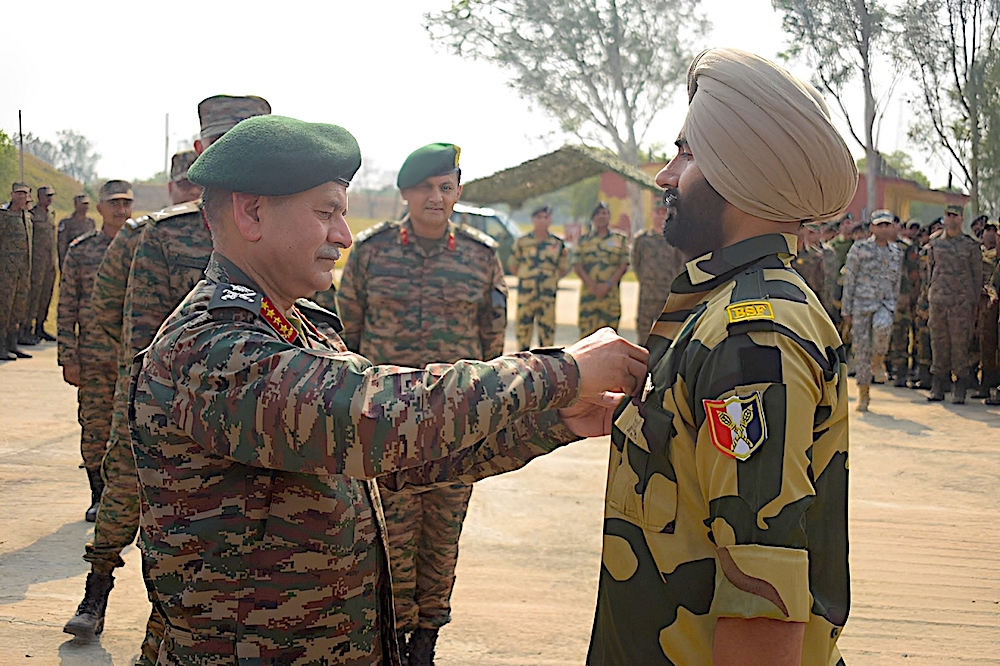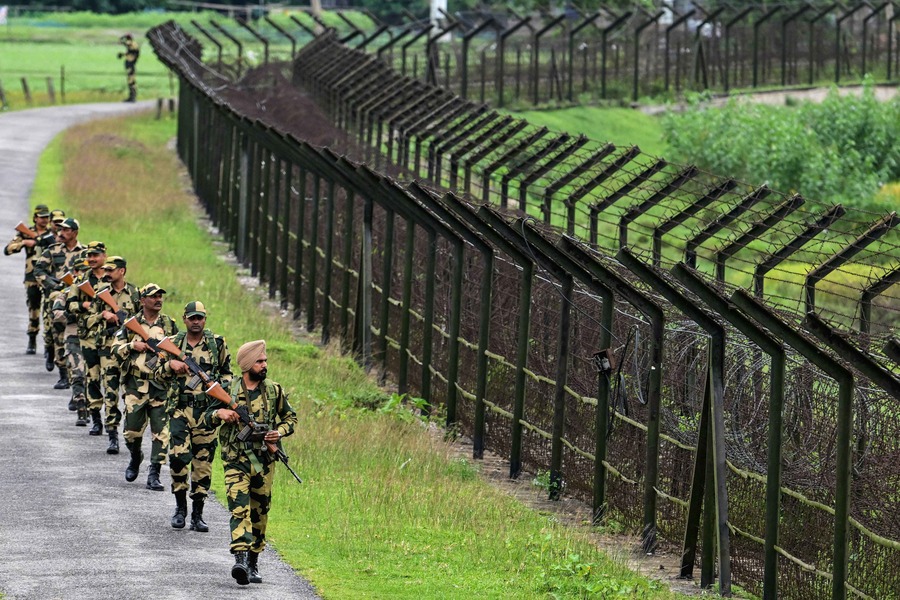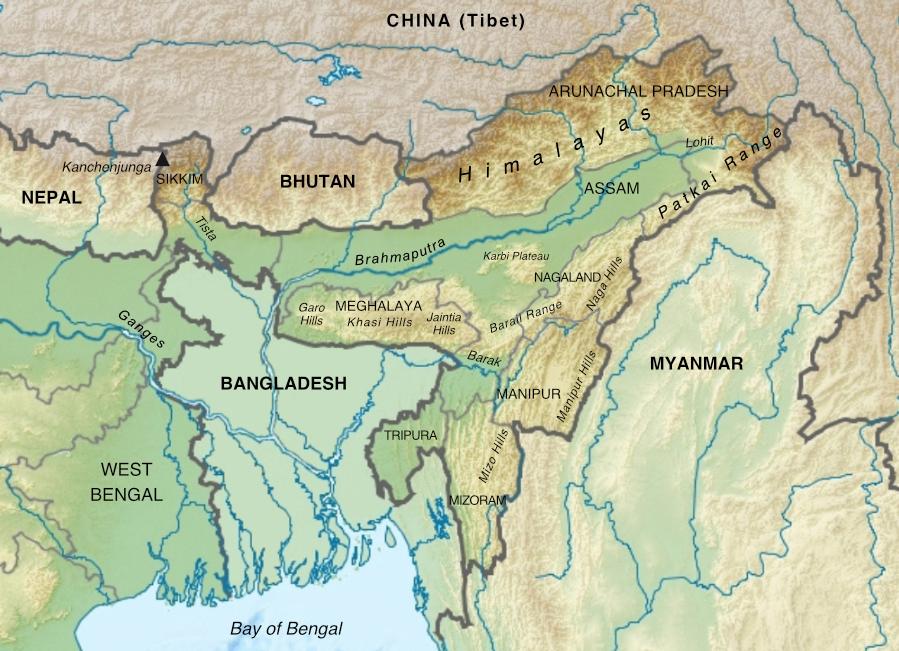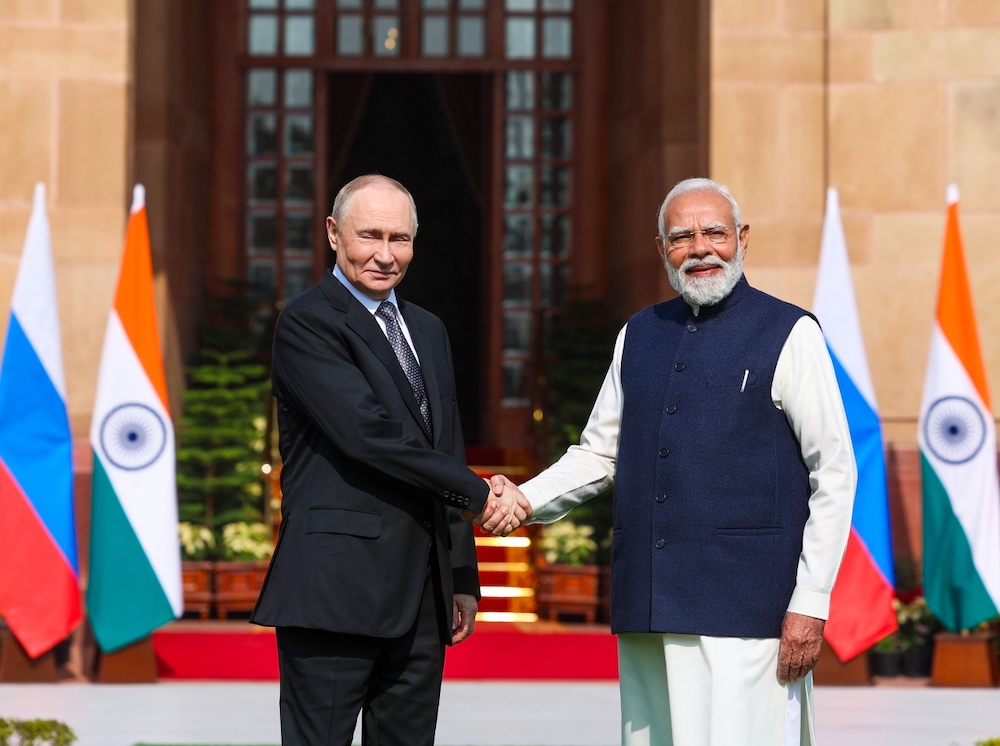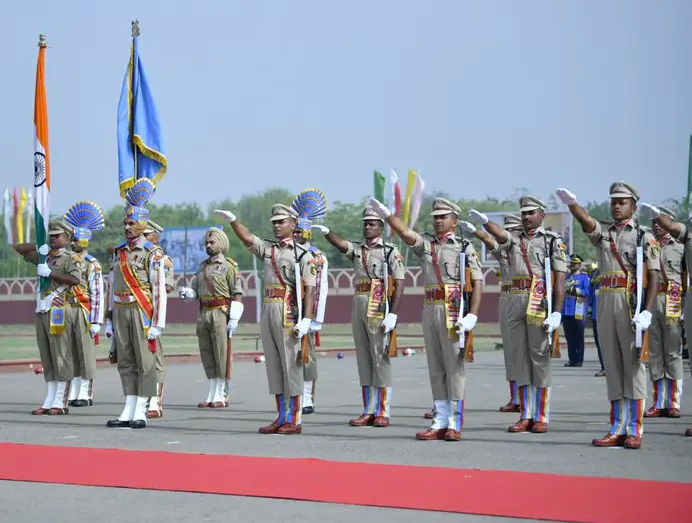 Hamas fighters in Gaza. (File photo)
Hamas fighters in Gaza. (File photo)
The Hamas cross-border attack on Israel, on October 7, 2023, and successful infiltration by breaching the border wall between Gaza and Israel brings into focus the perils of the routine paradigm of border guarding. It was a total breach of the national borders of Israel through land, air, and sea by rendering ineffective Israel’s superiority of weaponry, technology, and intelligence. The attack seems to have also temporarily paralysed Israeli boots on the ground – rendering them ineffective.
The deception, surprise, suddenness, and lightning speed of the attack totally flabbergasted Israel’s security establishment so much so that it took them a while for them to regain control of the situation and retaliate. The attack caused a huge dent in the general perception that Israel’s defence forces and technical infrastructure is impregnable. The attack exposed the lack of coordination among the stakeholders responsible for the Jewish state’s national security at micro and macro level.
Hamas killed 1,200 Israeli citizens and defence personnel and kidnapped around 240 people and took them back to Gaza as hostages. The scale of the mayhem and chaos it created in the security establishment shattered the confidence of citizens in the security establishment and damaged Israel’s national morale. As expected, Israel bowed to crush Hamas once and for all and eliminate all security threats emanating from Gaza.
Read also: Command duality in border guarding is against national security
However, even after more than seven weeks since Israel started pummelling Gaza with aerial and ground bombardment and launched a ground attack comprising infantry and armoured divisions, it is nowhere near achieving its declared objective of eliminating Hamas. Rather, it has been compelled to negotiate with Hamas in the interest of the safety of its citizens the group took hostage.
The whole episode exposed the chinks in Israel’s border guarding and border defence, drawing questions from not only Israelis but security observers and experts across the world.
What lessons can India draw from this?
India has a very long boundary sharing borders with several countries and vast border areas it needs to guard round the clock. It also has a very competent border-guarding establishment to do so. However, the Israel-Hamas conflict presents it with an opportunity to revisit its border-guarding paradigm in entirety.
India faces aggressive adversaries to its north, east, northeast, and west, who miss no opportunity to prod its borders and border-guarding expertise to exploit the gaps and chinks. The fact is that border-guarding central armed police forces (CAPFs) have professionally ensured effective border security – maintaining sovereignty and territorial integrity of national borders.
Read also: India-Myanmar border guarding needs a fresh approach
However, the vastness and complexity of our borders in terms of geographical and climatic difficulties call for an imposition of greater caution upon border-guarding forces to be in sync with the changing dynamic borders’ security scenario. There is also a need for border-guarding forces to carry out an in-depth analysis of the Israel-Hamas conflict and draw lessons to stave off such threats from both state and non-state actors ably supported by adversaries.
The vastness of border regions also makes it incumbent upon the border-guarding CAPFs to read each and every border stretch, appreciate threats and devise an effective “threat and vulnerability” template and apply it to each and every stretch. There is also a need to prepare and rehearse responses to probable threats.
Border guarding calls for detection, prevention, and neutralization of threats employing different methodologies. Israel’s border defence in the mindset of the security establishment was treated as one of the best and impenetrable being technologically superior, has impenetrable defence potential to support technological inputs to detect, prevent, neutralize, and destroy the enemy. However, the myth of superiority was shattered by Hamas on October 7 wherein it found ways and means to temporarily neutralize the technological superiority and render boots on ground ineffective.
The fact that Israel was compelled to call reservists and mobilize its entire military is testimony to meticulous planning, preparation, and execution by Hamas. The planning and preparations must have been spread over a long time.
There is an immediate and urgent need for the defence and border-guarding establishment to carry out in-depth analysis to draw lessons from the Israel-Hamas conflict. Surely, border-guarding CAPFs must have instituted studies through their in-house thinktanks to draw lessons on border guarding from the October 7 attack.
Read also: Manipur crisis is becoming national threat, govt must act now
What are probable lessons from conflict for border guarding?
First is intelligence failure to detect planning and preparations for attack, which involved large-scale preparation in terms of training, rehearsals, and ultimate execution. There is no doubt that Hamas’s deception was extremely effective. Israel’s over dependence on technology kept Hamas’s preparations and plans totally camouflaged from Israeli intelligence.
This shows that India’s border-guarding establishment needs to strengthen its intelligence setup technologically as well as through strengthening of the human component. It needs to ask itself: does its intelligence setup has capability to have intelligence of the adversary’s activities all along the front with a deep peep inside the adversary’s territory to keep tab on its intentions, collate intelligence and disseminate it to the stakeholders for being physically and mentally alert and prepared to retaliate?
The need is to carry out realistic analysis to flag deficiencies in intelligence set up to strengthen the intelligence grid of border-guarding forces and make it accountable. There is also a need to improve technical intelligence infrastructure to scan all around the border areas. In addition, human intelligence must be given a premium as there is no substitute to human intelligence.
Secondly, border-guarding forces need to carry out an in-depth stretch-wise study of the terrain and ground. There must be in-depth analysis of the ground to discern likely peacetime and wartime threats, which are likely to be encountered in those stretches, and tailor their own response mechanism to those threats. Their response mechanisms need rehearsals for proper coordination between various stakeholders. It is also imperative to also keep other stakeholders, like the police and other sister security organizations, in loop on need basis.
Read also: Implement professional protocol for top posts in border-guarding CAPFs
Thirdly, border-guarding CAPFs need to carry out an analysis of their current peacetime border methodologies – both human and technological, their efficacy, and the need for structural changes in those methodologies after identifying deficiencies. These methodologies must be high on technology and unconventional innovations involving human components. Unconventional innovations may include putting a premium on forward domination and hinterland mapping that will help to maintain a balance between technology and boots on the ground.
Unconventional methods and innovations may also involve carrying out an in-depth analysis of the adversary’s defence and border infrastructure. The border-guarding CAPFs must have detailed knowledge of the enemy’s habits, intentions, routes, and laterals for initiating an effective response, in case the need arises.
Routine practices are conventional, lack innovation, and have no deception and surprise component in them. As it is very difficult to maintain surprise in peacetime border guarding, unless unconventional, methods are adopted to beat the routine practices.
Therefore, unconventional border-guarding methods are the need of the hour. They play a very effective role, especially against hostile counterparts, like Pakistan, who have not hesitated to disturb the peace and harmony in India’s hinterland to meet their objective of spreading disturbances through demographic shift, pumping drugs, arms and ammunition to achieve the larger aim of spreading dissatisfaction and disturb peace and harmony.
Read also: Pulwama attack needs answers to avoid politicization, end speculations
The Indian government needs to step in to task the country’s border-guarding CAPFs to carry out detailed studies on the surprise October 7 Hamas attack on Israel, its implications for Indian border guarding, especially against our western and eastern neighbours to draw the right lessons.
Disclaimer: The views expressed in the article are the author’s own and don’t necessarily reflect the views of India Sentinels.
Follow us on social media for quick updates, new photos, videos, and more.
Twitter: https://twitter.com/indiasentinels
Facebook: https://facebook.com/indiasentinels
Instagram: https://instagram.com/indiasentinels
YouTube: https://youtube.com/indiasentinels
© India Sentinels 2022-23


